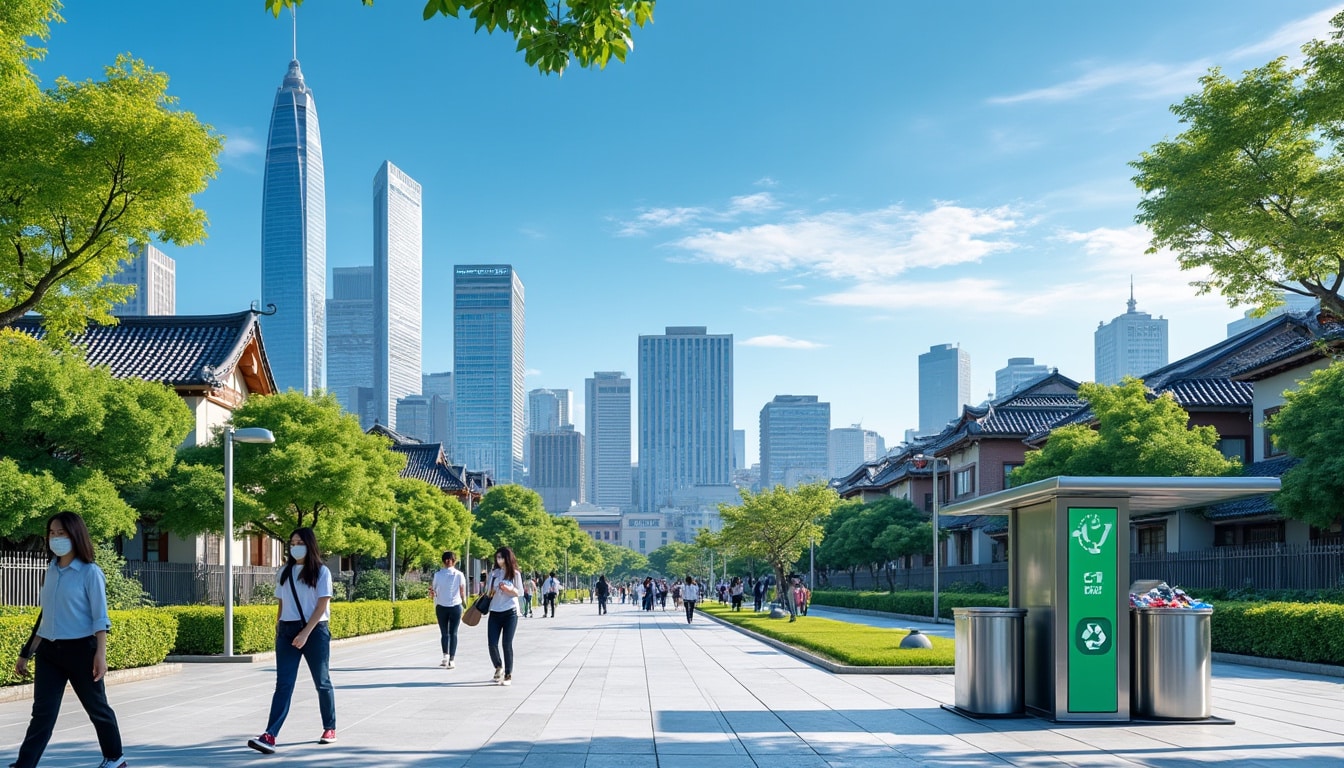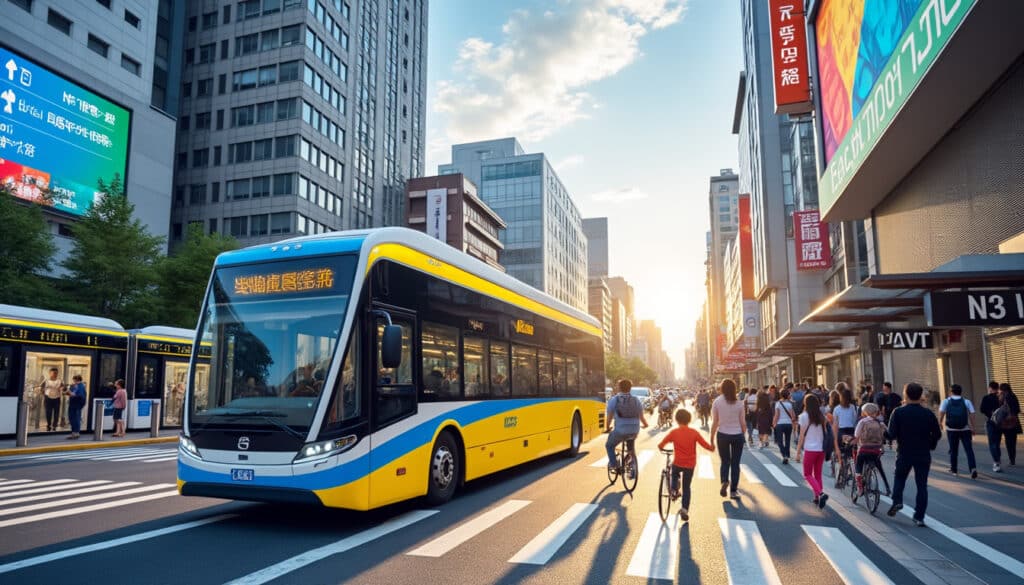Seoul, the bustling capital of South Korea, is not only known for its vibrant cultural scene and technological advancements, but also for its commendable standards of cleanliness and hygiene. Whether wandering through its well-maintained streets or visiting its modern facilities, the meticulous attention to sanitation is evident. This dedication forms a part of the everyday life for both residents and visitors, ensuring a pleasant and safe environment. From the city’s public infrastructure to personal cleanliness habits, the emphasis on hygiene in Seoul is deeply ingrained in its culture. Let’s explore the various aspects that contribute to Seoul’s reputation for cleanliness.
Public Spaces: A Commitment to Cleanliness
Seoul’s approach to maintaining clean public spaces is a testament to both governmental policies and cultural attitudes towards hygiene. Walking through the city, it’s evident that there’s a collective effort to keep the streets free of litter. Public areas such as parks, sidewalks, and tourist sites are meticulously maintained, creating a welcoming atmosphere for all.
Government Initiatives: The South Korean government has implemented several policies to promote cleanliness across the city. Initiatives like the placement of adequate waste disposal bins, regular street cleaning schedules, and heavy fines for littering are among the measures taken to ensure public spaces remain immaculate. The public is encouraged to participate in these efforts, often resulting in citizen-led campaigns to clean up local neighborhoods.
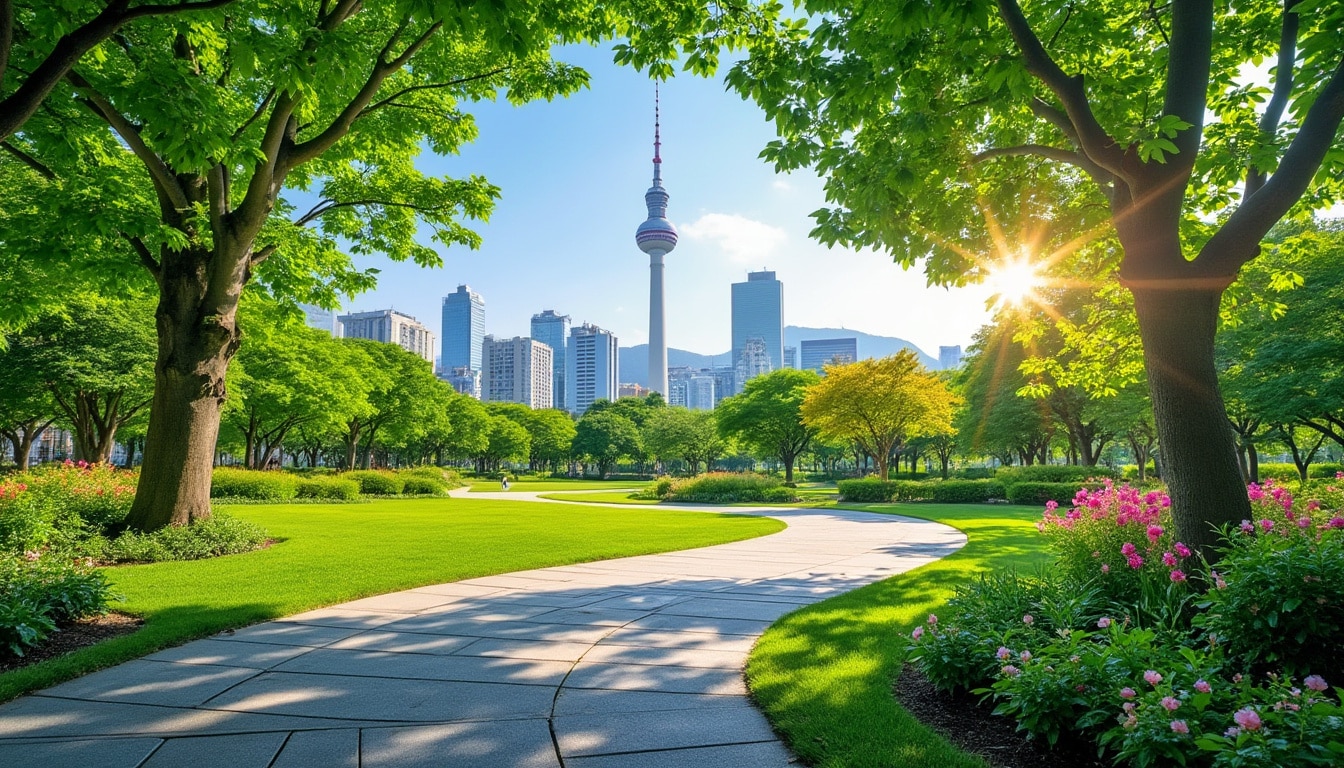
Civic Participation: Cultural practices in Korea promote involvement in community welfare. Regularly, schools and organizations take part in cleaning campaigns to instill a sense of responsibility towards their surroundings. This collective mindset, supported by educational programs, reinforces the importance of keeping shared spaces tidy.
- 🌳 Citizen-led neighborhood clean-ups
- 🚮 Waste management awareness programs
- 🏆 Recognition programs for clean neighborhoods
Public spaces in Seoul are also equipped with modern facilities to enhance hygiene. Automated public toilets, found in busy districts and subway stations, come with self-cleaning features to ensure they remain hygienic throughout the day. Public restrooms are not just numerous, but they are designed to meet high standards of cleanliness, often monitored by custodians to address any maintenance needs quickly.
Travelers to Seoul can enjoy beautiful, clean parks such as the Hangang Park or the landscaped views around the Seoul Tower without the distraction of litter. By combining governmental initiatives with community involvement, Seoul successfully maintains a high level of cleanliness in its public spaces.
Cultural Practices and Cleanliness
The emphasis on cleanliness in Seoul is deeply rooted in Korean culture. This cultural influence is evident in the everyday practices of its residents and the wider societal expectations for sanitation and hygiene.
Early Education: In South Korea, cleanliness and hygiene are foundational elements taught from a young age. Schools introduce personal hygiene as an essential part of the curriculum, ensuring children grasp the importance of staying clean and respecting public spaces.
Families also play a crucial role in fostering these habits. Traditional Korean homes practice frequent cleaning rituals that support a hygienic lifestyle, setting the foundation for lifelong habits. The use of cleansing foams and thorough skincare routines are not just part of the popular K-Beauty trend, but also reflect the national emphasis on cleanliness.
- 🧼 Household cleaning rituals
- 💦 Frequent handwashing protocols
- 🥢 Etiquette practices to maintain hygiene during meals
Traditional Influences: Korean traditional medicine equally underscores the significance of cleanliness in maintaining health. Practices emphasize that a clean living environment and personal hygiene are vital for preventing illnesses, reinforcing societal norms surrounding cleanliness.
Moreover, Korean social etiquette places importance on maintaining orderly and clean environments, especially when interacting with others, which extends to both personal and public settings. This cultural expectation ensures individuals uphold respect for shared spaces, thus contributing to the city’s overall cleanliness.
In Seoul, these cultural practices are especially apparent in daily life, from students cleaning their classrooms to workers ensuring their desks are tidy, showing how deeply ingrained this respect for hygiene is.
Hygiene in Transportation Systems
Seoul’s public transportation system, utilized by millions daily, is another area where cleanliness is paramount. The city boasts an efficient network, but its exceptional sanitation standards are what set it apart, ensuring a pleasant travel experience for all commuters.
Regular Sanitation: Subway stations and trains undergo frequent cleaning to maintain hygiene. Trains feature clear guidelines on maintaining cleanliness, with passengers encouraged to dispose of litter responsibly and refrain from eating inside the trains.
Modern Facilities: Many subway stations have newly installed hand sanitizing stations to promote personal hygiene among commuters. Cleanliness is also visible in bus terminals and at the Incheon International Airport, where extensive cleaning operations are regularly carried out to keep facilities spotless.
- 🚉 Well-maintained subway stations
- 🚌 Clean and orderly bus terminals
- ✈️ Spotless airport facilities
When traveling via public transportation, it’s common to witness staff cleaning and maintaining order within vehicles and stations, prioritizing the welfare of both locals and tourists. This emphasis on hygiene ensures that Seoul’s public transportation system remains an ideal model of cleanliness and comfort.
Venture beyond trains and buses, and you’ll find taxi services also adhere to these high standards. Both drivers and passengers understand the expectations of cleanliness, further emphasizing the city’s dedication to maintaining a sanitary environment in all forms of transportation.
Personal and Home Hygiene Practices
In Seoul, personal hygiene is as emphasized as public cleanliness, playing a significant role in day-to-day living. The meticulous approach to health and cleanliness is visible in domestic settings across the city.
Advanced Hygiene Products: Korean companies, including global brands like LG, Samsung, and Amorepacific, introduce innovative hygiene products and technologies. Household products, such as air purifiers and advanced washing machines, are designed to provide optimal cleanliness at home.
- 🩸 High-tech air purification systems
- 🧼 Diverse cleansing foam options
- 🧺 Advanced washing machines
Koreans follow extensive cleaning routines, utilizing a variety of products available at supermarkets like Lotte Mart and Shinsegae, dedicated to ensuring their homes meet high cleanliness standards.
Online Influence: With the expansion of digital platforms, platforms like Naver allow individuals to access tips and educational content on maintaining personal hygiene. Many educational series delve into topics ranging from skincare routines to home cleaning strategies, keeping the Korean populace informed and engaged with hygiene practices.
The focus on cleanliness extends to personal habits, where Koreans practice regular handwashing and other measures in their daily routines. This attention to detail greatly contributes to the overall health and prevention of illnesses in the community, reflecting how personal and home hygiene practices in Seoul are top-of-mind priorities for residents.
Adapting to Hygiene Expectations: A Visitor’s Guide
For those visiting Seoul, understanding local hygiene practices ensures a smoother, more enjoyable stay. The city’s clean environment not only elevates the travel experience but also underscores its sustainable living commitments.
Public Restroom Etiquette: In Seoul, it is common to find signs in restrooms requesting users to dispose of toilet paper in designated bins rather than flushing. These practices prevent plumbing issues common in older buildings and ensure facilities remain tidy for the next user.
Navigating Facilities: Finding public restrooms while out can be challenging, but using the NAVER map app can guide tourists to nearby facilities. Additionally, subway stations and large public venues, such as hotels and department stores, offer clean restrooms that visitors can utilize.
- 🗺️ Use NAVER map to locate nearby restrooms
- 🏢 Visit department stores for accessible facilities
- 🚇 Utilize subway stations when needed
Visitors are encouraged to carry personal hygiene items such as small packs of tissues and hand sanitizers, readily available at local convenience stores. These items ensure that one can maintain personal cleanliness while adapting to Seoul’s communal practices.
Korean hospitality often extends to cleanliness, with businesses and hosts alike ensuring premises are well-kept for visitors. This commitment serves as yet another reason why Seoul stands out as a leader in promoting cleanliness and hygiene.
Understanding Korean Bathrooms
Experiencing Korean bathrooms might come as a surprise to newcomers. From traditional squat toilets to super-modern versions with heated seats and bidets, understanding these facilities can enhance a visitor’s experience significantly. Always remember to carry essentials like toilet paper, as it isn’t always provided in stalls. Such practices underscore a distinctive aspect of living or visiting Korea, highlighting the city’s vast contrast between tradition and modernization.
FAQ about Hygiene in Seoul
- What should visitors know about restroom etiquette in Seoul? Visitors should be aware that disposing of toilet paper in bins rather than flushing is often preferred to avoid plumbing issues.
- How can tourists ensure personal hygiene while exploring Seoul? Carrying items like tissues and hand sanitizers is recommended to maintain hygiene on the go.
- Are public restrooms available across Seoul? Yes, but they may require some searching, and using apps like NAVER maps can help locate nearby facilities quickly.

Seoul, a city where ancient traditions blend effortlessly with ultramodern innovation, offers a plethora of attractions waiting to be explored. From vibrant shopping districts to historic temples, Seoul is a destination rich with culture and excitement. However, as with visiting…
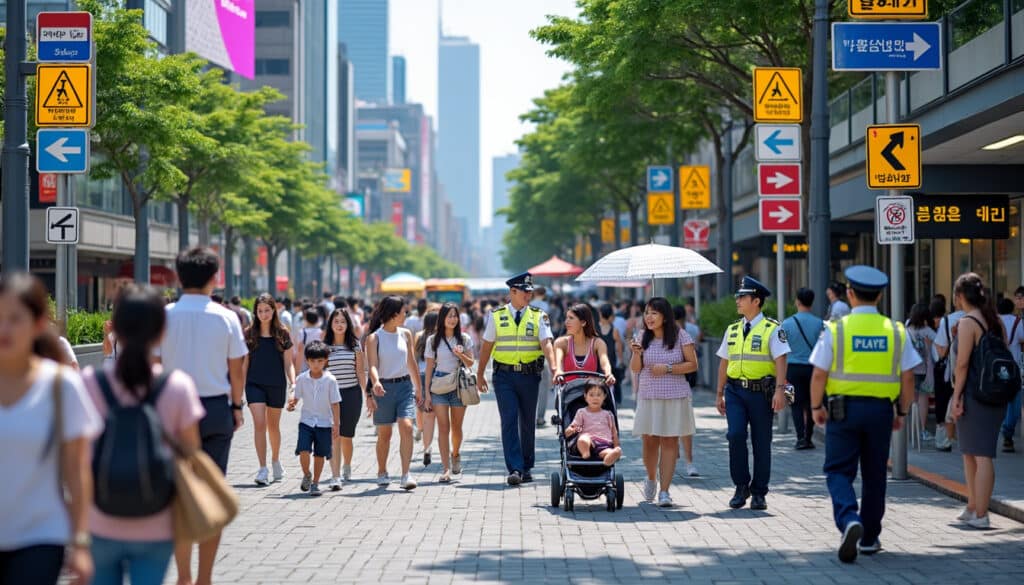
Exploring Seoul, the vibrant capital of South Korea, offers travelers a unique blend of ancient traditions and cutting-edge modernity. This bustling metropolis, renowned for its K-pop culture, delicious street food, and beautiful landscapes, is also known for its commitment to…
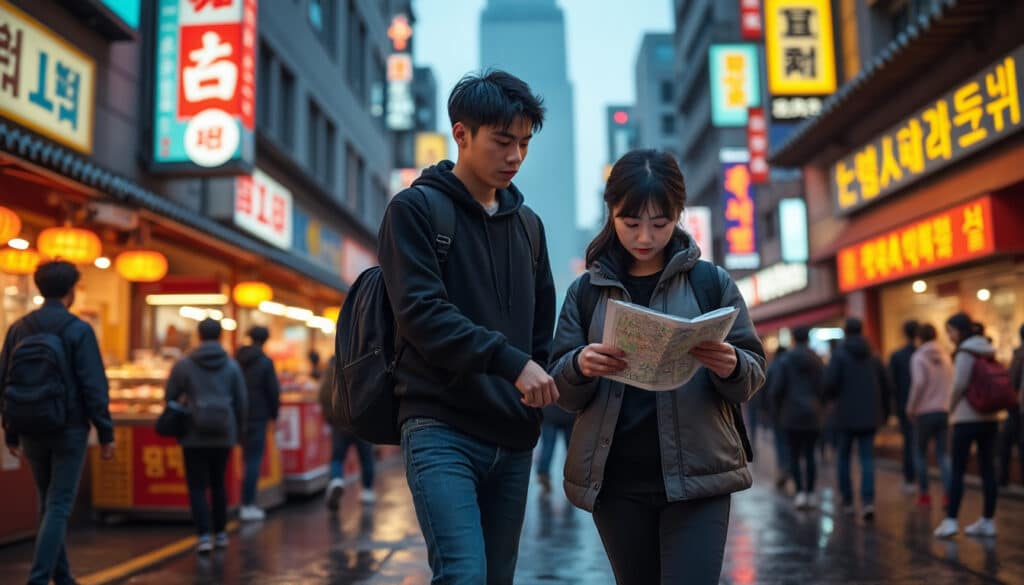
Pickpocketing and theft in Seoul
Seoul, the bustling capital of South Korea, is a melting pot of tradition and modernity, where ancient palaces coexist with towering skyscrapers. But like any major city, Seoul has its challenges, including the issue of pickpocketing and petty theft. As…
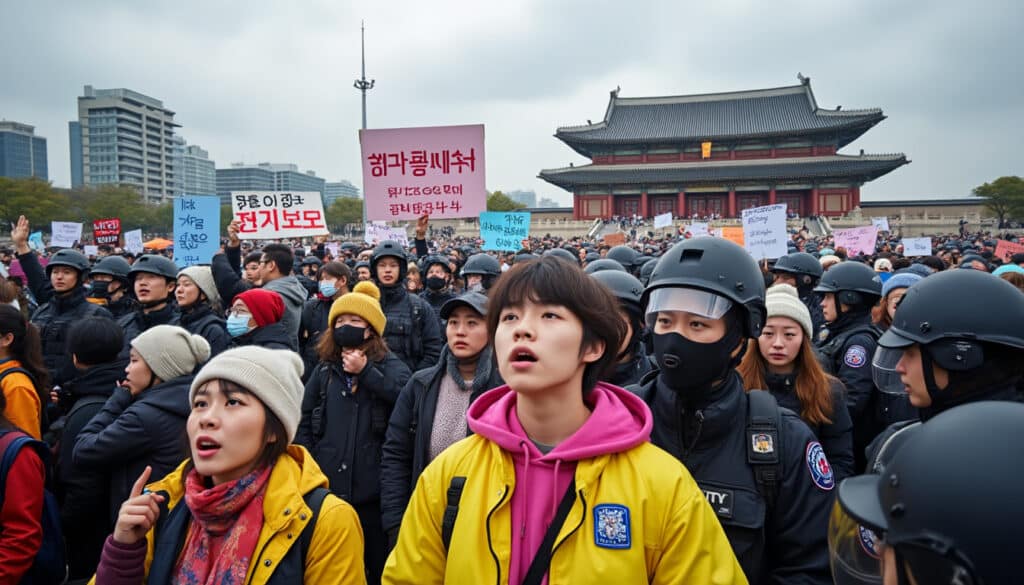
Protests and social unrest in Seoul
The bustling streets of Seoul have recently become the stage for significant social tensions and public discontent. The capital of South Korea is witnessing a powerful wave of protests that reflect deep-seated issues within the country’s political landscape. As the…
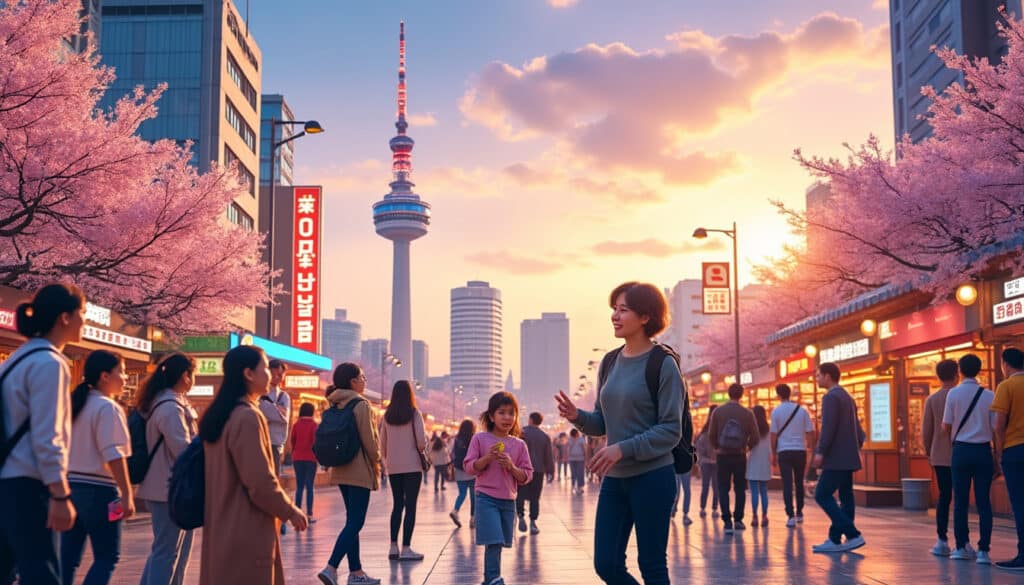
Safety in Seoul for travelers from different countries
Seoul, the vibrant heart of South Korea, is a city that seamlessly blends rich history with cutting-edge technology. For those planning a visit, understanding the city’s safety dynamics is crucial. With questions often arising about political tensions, crime rates, and…

